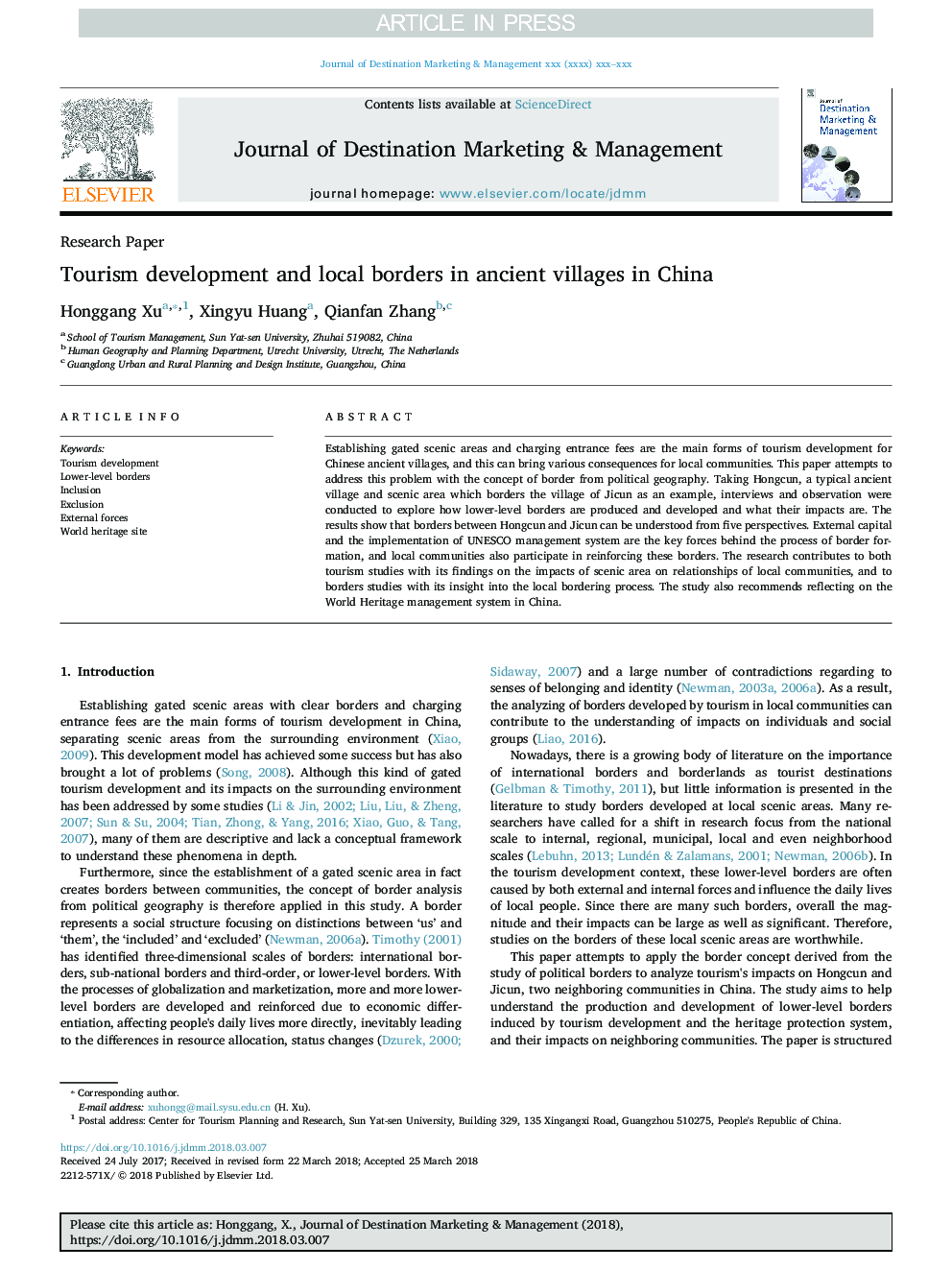| Article ID | Journal | Published Year | Pages | File Type |
|---|---|---|---|---|
| 7419415 | Journal of Destination Marketing & Management | 2018 | 10 Pages |
Abstract
Establishing gated scenic areas and charging entrance fees are the main forms of tourism development for Chinese ancient villages, and this can bring various consequences for local communities. This paper attempts to address this problem with the concept of border from political geography. Taking Hongcun, a typical ancient village and scenic area which borders the village of Jicun as an example, interviews and observation were conducted to explore how lower-level borders are produced and developed and what their impacts are. The results show that borders between Hongcun and Jicun can be understood from five perspectives. External capital and the implementation of UNESCO management system are the key forces behind the process of border formation, and local communities also participate in reinforcing these borders. The research contributes to both tourism studies with its findings on the impacts of scenic area on relationships of local communities, and to borders studies with its insight into the local bordering process. The study also recommends reflecting on the World Heritage management system in China.
Related Topics
Social Sciences and Humanities
Business, Management and Accounting
Business, Management and Accounting (General)
Authors
Honggang Xu, Xingyu Huang, Qianfan Zhang,
